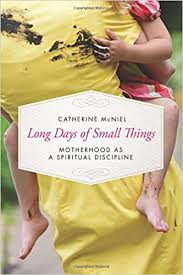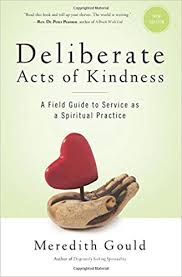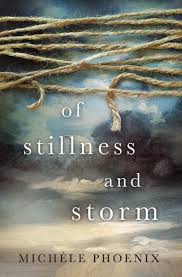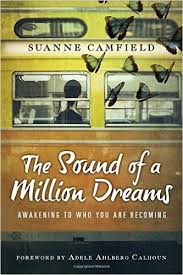Each Thursday, the mailman delivers a weekly shopper newspaper to us that includes a few local stories and a feature entitled “Sound Off”. This space is devoted to printing the rants of commenters emboldened by the possibility of complete anonymity. (The paper instructs them to call their pearls of wisdom in to a phone number I suspect is connected to an answering machine in a broom closet.)
As the numbers of unaccompanied minors from Central America who have made their way across this country’s southern border has captured headlines in recent weeks, this weird little column in the paper has featured some of the most xenophobic commentary I’ve ever heard this side of those gems that pop up in my Facebook newsfeed. The themes of these Sounder-Offers include: “Ship `em back where they came from”, “We taxpayers shouldn’t be picking up the tab for these people to learn English. They should get together and hire a tutor.” and “They’re all a bunch of criminals messing up our country and taking all the jobs”. There is not a hint of “we” in their words. It’s all Us Versus Them, and the “us” team for these folks has been formed by the team captains of fear and misinformation.
 My friend Dale Hanson Bourke has a fair and balanced antidote to the misinformation part of the equation with her excellent book Immigration: Tough Questions, Direct Answers, a welcome addition to the Skeptic’s Guide Series. (I reviewed the first book in the series here.) The Q and A format of the fact-packed book offers answers to dozens of questions on the topic including “Do immigrants pay taxes?”, “How many people are in the United States illegally because they overstayed their visas?”, “What is the age distribution of the immigrant population?” and “What are the specific proposals for immigration reform?” She offers facts and resources that allow readers to become better educated on an issue that will shape our culture as long as Emma Lazarus’s words on the Statue of Liberty continue to beckon people to join our country of immigrants.
My friend Dale Hanson Bourke has a fair and balanced antidote to the misinformation part of the equation with her excellent book Immigration: Tough Questions, Direct Answers, a welcome addition to the Skeptic’s Guide Series. (I reviewed the first book in the series here.) The Q and A format of the fact-packed book offers answers to dozens of questions on the topic including “Do immigrants pay taxes?”, “How many people are in the United States illegally because they overstayed their visas?”, “What is the age distribution of the immigrant population?” and “What are the specific proposals for immigration reform?” She offers facts and resources that allow readers to become better educated on an issue that will shape our culture as long as Emma Lazarus’s words on the Statue of Liberty continue to beckon people to join our country of immigrants.
“Give me your tired, your poor,
Your huddled masses yearning to breathe free,
The wretched refuse of your teeming shore.
Send these, the homeless, tempest-tossed to me,
I lift my lamp beside the golden door!”
Dale was kind enough to answer a few of my questions about what she learned as a result of writing this book. The topic may be polarizing, but her common-sense approach can help all of us think about the issues surrounding immigration by injecting little more “We” into the conversation.
* * * * * * *
(1) You have worked with displaced people and minority populations in a variety of places in the world, and came to your subject matter with all of that remarkable experience. In the course of your research for this book, what surprised you most about the subject of immigration?
We hear so much about immigration in the news but once I really began to study the subject I was surprised by many things. In general, immigration is contentious and almost every country has struggled with the idea of who belongs and who doesn’t. Citizenship is not easily obtained in most countries and even the most liberal countries have become more conservative about immigration.
Once I began to look at the subject globally, it helped me make more sense of what we focus on in the US. For example, I was surprised to learn that few countries are “birthright” countries, meaning that being born on the soil automatically makes one a citizen. The US continues this policy but it is not very common and certainly drives some of our immigration issues.
I was also surprised by the complexity of our legal immigration system. To immigrate to the US is often quite complex and depending on your country of origin, can involve years or even decade-long delays. So those who try to immigrate legally often face huge challenges.
(2) You highlight common misconceptions about the immigration process in the book. As you have talked about this subject with people around the country on all ends of the political and social spectrum about the themes in your book, what would be the top three (or five – or whatever number comes to mind) misconceptions about the immigration process and/or undocumented immigrants you’ve encountered?
The first misconception I faced was the notion that people who are in the US illegally are here because they are lazy or don’t care about breaking the law. Once I realized how difficult it is for someone to legally immigrate–especially from a country like Mexico, where we cap the number of people who can enter each year—I began to understand why so many people are tempted to give up on doing things the right way.
Second, I was under the impression that most of the undocumented people in the US snuck over the border. I was surprised to learn how many of those who are here illegally actually entered the country legally—with a visitor, student, or other visa—and then stayed on but could not get a new visa. This is where our laws are particularly broken. We educate the best and brightest young people, then make it almost impossible for them to stay in the country legally. Even worse, other countries have policies that welcome those with advanced degrees and make it simple for them to enter the country and become citizens. Our immigration policies often work against our best interests as a country.
I was also amazed to learn that the US has a “green card lottery” and every year awards thousands of people legal status based on a random drawing of applicants from under represented countries. Imagine how it must feel to be a person from Mexico who has waited ten or fifteen years for a visa in order to be united with family members and meanwhile, a person from Lithuania puts his name into the drawing and is awarded a green card based on chance.
Like many Americans, I started this study thinking that people should obey laws and do things the “right way.” Then I became frustrated by the inconsistency and randomness of our system that makes doing things legally almost impossible at times. Add to that the number of unscrupulous immigration attorneys who take people’s hard earned money and then leave them worse off than they were before and it’s surprising that our undocumented population isn’t greater.
(3) What would you hope people know or do as a result of reading the book?
So many of our debates on immigration are fueled by emotion but not informed by the facts. I would love it if instead of spending so much time on those who are in this country illegally, we could begin to focus on fixing our legal immigration system. We need to be able to compete with other countries for the best and the brightest. We need to make immigration to the US a clear and simple process that is fair for everyone. We need workers, so we must figure out how to allow them to work legally and be treated fairly.
There are so many aspects of the immigration debate that don’t need to be polarizing. Let’s look for common ground and solve what we can, for the good of this country.















